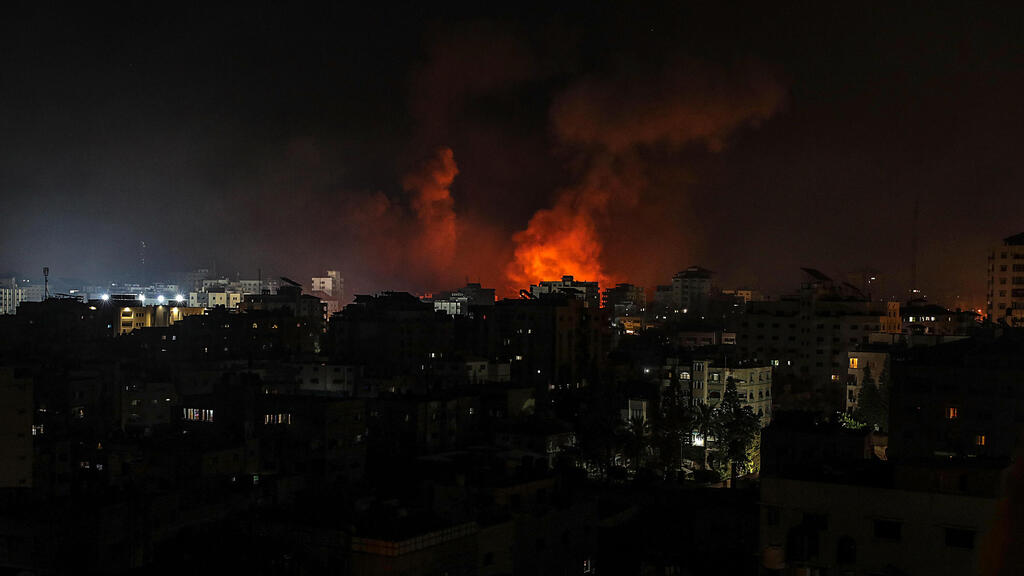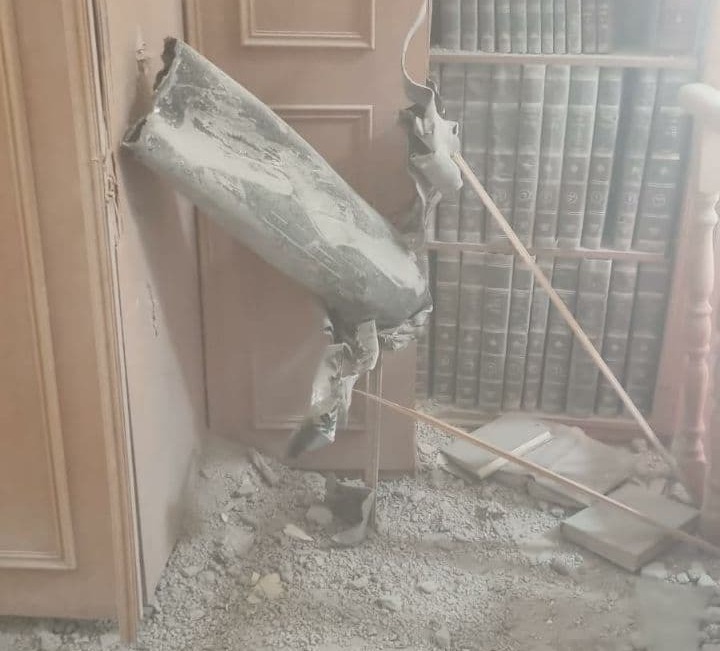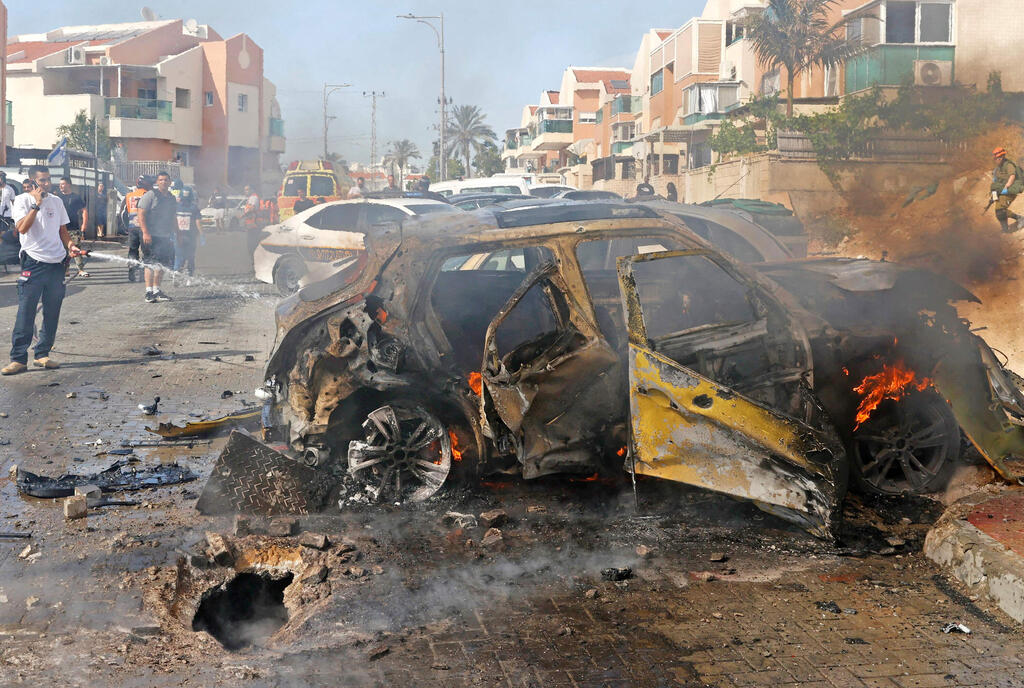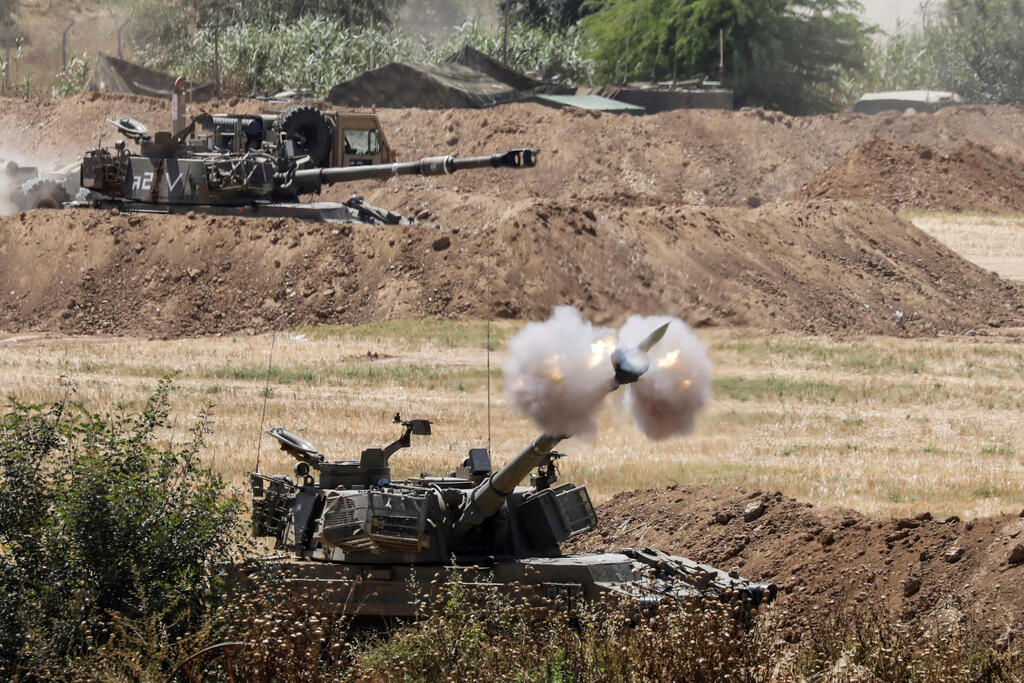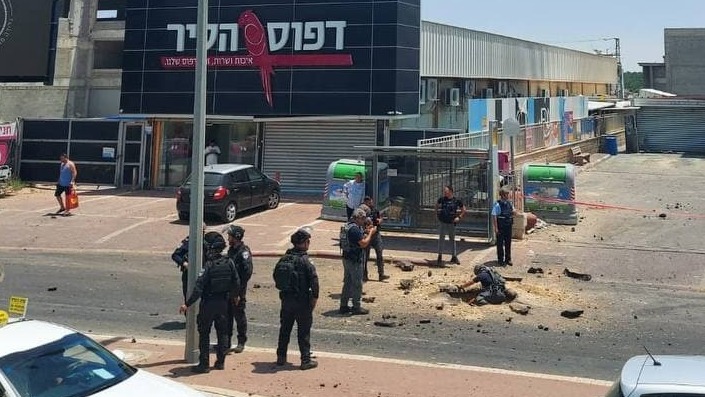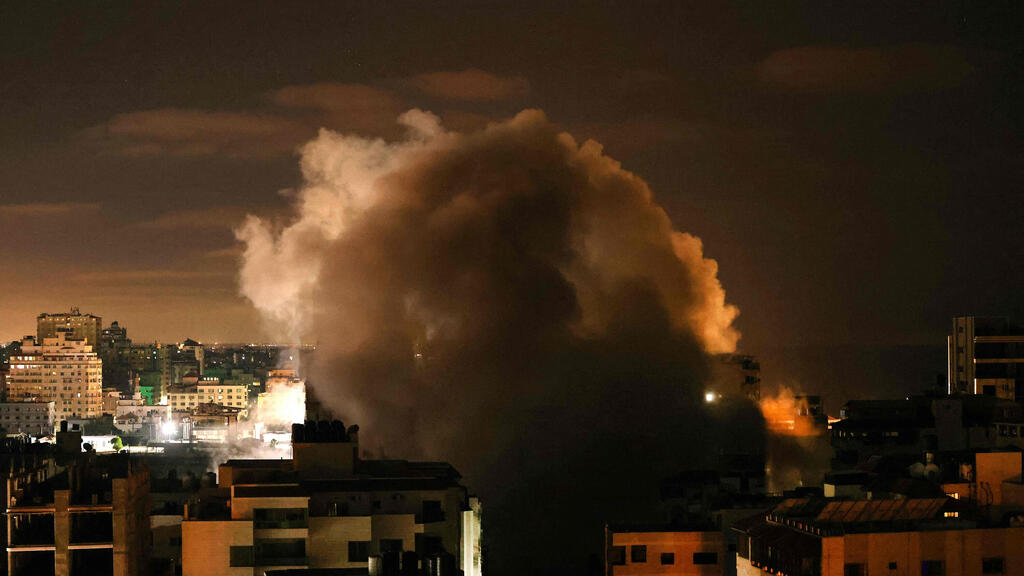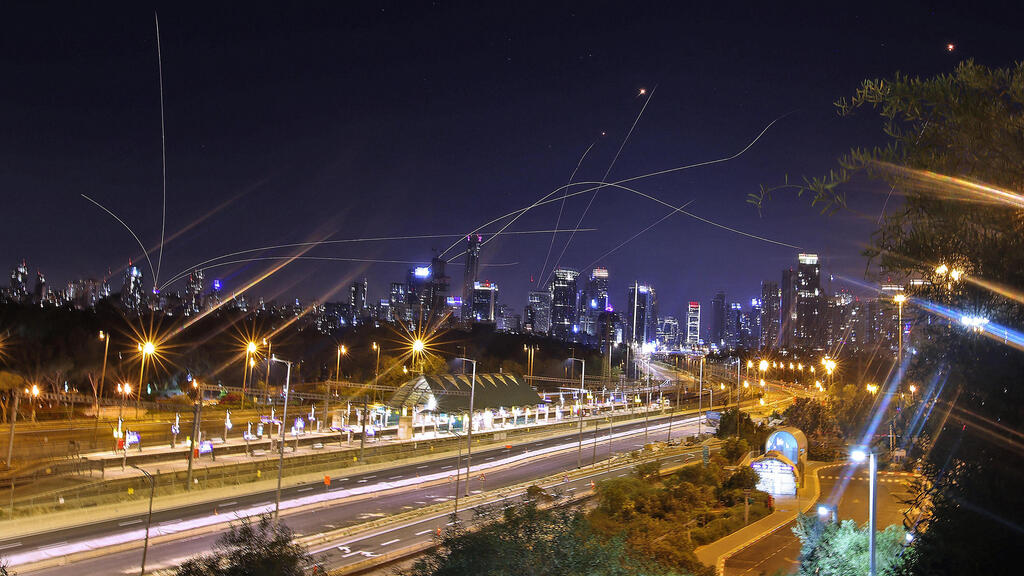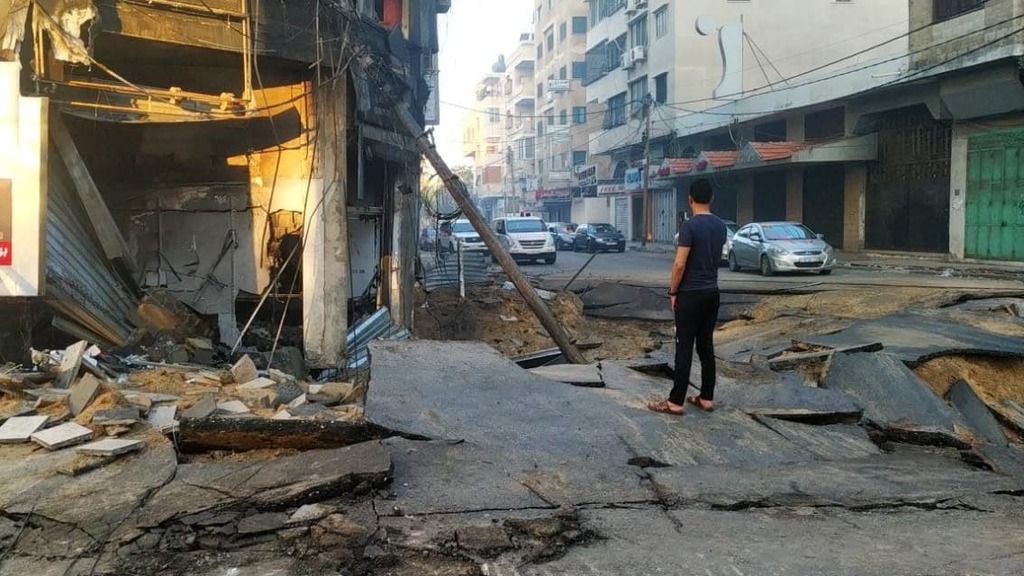Rocket fire on southern Israel resumed from Gaza on Sunday night, ending a brief period of relative calm.
Sirens wailed in Ashkelon and the surrounding area after a a pause some two hours.
11 View gallery
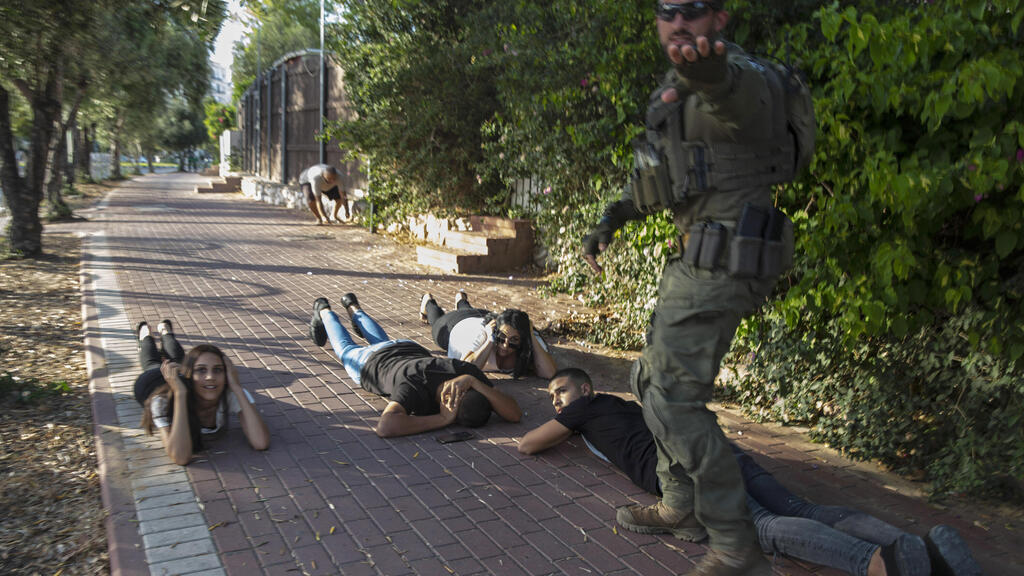

Israelis lie down on the ground as rocket alert sirens sound in Ashkelon on Sunday evening
(Photo: AP)
Earlier Sunday evening, dozens of sirens sounded across the south as the country marked the start of the Jewish holiday of Shavuot.
The sirens were heard throughout the south, including Ashdod, Ashkelon and Be'er Sheva and across the Gaza border communities on the seventh consecutive day of fighting.
Several of the rockets slipped past the Iron Dome missile defense system and hit residential areas, although there were no reports of injuries.
At least two rockets hit Ashkelon and one struck nearby Ashdod on Sunday afternoon, ending a brief respite from Gaza attacks on the south, as Israel indicated that the fighting that began last Monday would continue for at least another few days.
In Ashkelon, the rockets hit a synagogue and a parked car, setting it alight. An eight-month-old baby was also lightly hurt as his mother ran to their protected area. In Ashdod, a rocket struck a residential building under construction.
A rocket also fell in Be'er Sheva as the city was again pounded by rocket fire along with the communities bordering the Gaza Strip.
The attacks resumed after several hours of relative calm, following a morning of heavy rocket fire after the IDF destroyed the home of Yahya Sinwar, the Hamas leader in Gaza.
'No great pressure to stop'
Meanwhile, a source in Jerusalem said at the end of a four-hour security cabinet meeting Sunday afternoon that an imminent ceasefire had not been on the agenda. He said that ministers had approved the continuation of the IDF assault on strike terror targets in Gaza, dubbed Operation Guardian of the Walls.
The source said any ceasefire talks would include the issue of the two Israeli nationals and the bodies of two fallen soldiers being held in Gaza.
A source in the cabinet also said the operation would end this week but added that, "There is no great international pressure to stop."
An IDF spokesman said Sunday afternoon that Israel Air Force fighter jets had attacked assets in the intelligence headquarters of the Hamas military wing in the northern Gaza Strip.
"This attack caused damage to key Hamas infrastructure," the spokesman said.
The IDF also attacked more facilities for the production of weapons in the homes of Hamas activists, and also struck a naval weapons depot in the southern Strip.
11 View gallery
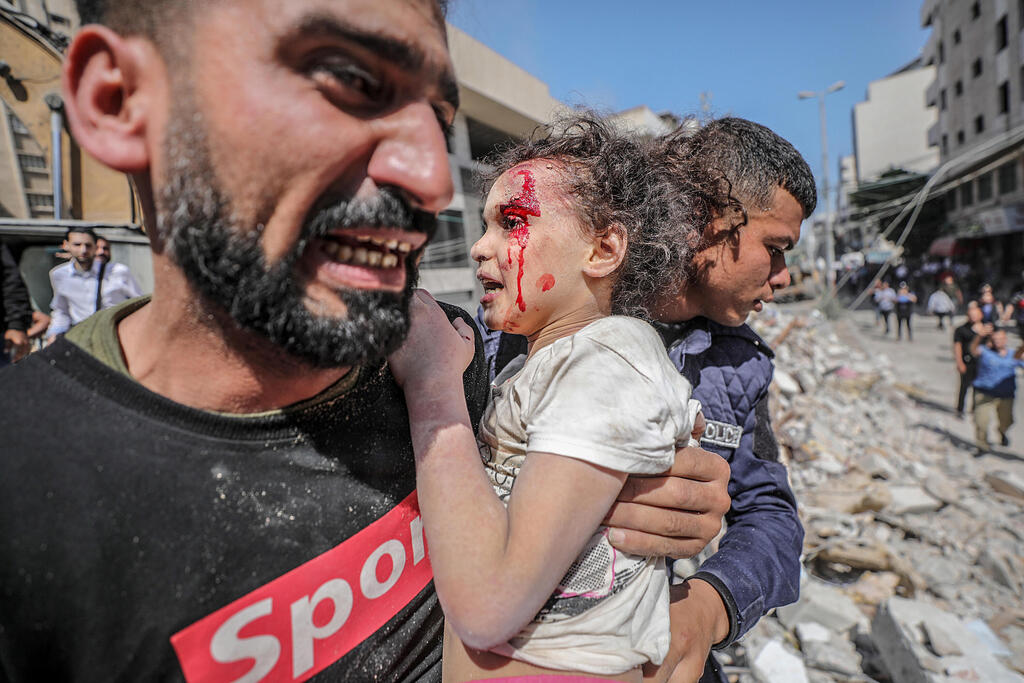

A Palestinian man holds a wounded child following an IDF strike on Gaza on Sunday
(Photo: EPA)
In Gaza, 33 people, including eight children, were reported killed in a IDF strike on the Hamas network of tunnels.
The attacks on southern Israel had continued for most of Sunday, with sirens sounding repeatedly throughout the region.
One rocket struck the city of Netivot on Sunday morning, causing damage but no injuries. Hamas also launched dozens of barrages at Be'er Sheva overnight. No injuries were reported in the southern city.
Meanwhile the IDF continued its strikes on Gaza on Sunday, targeting the underground tunnel system. Hamas reported dozens killed in the attacks.
Gaza rocket lands in Netivot on Sunday
Israel launched at least 150 strikes on Gaza overnight, targeting underground tunnels and the home of Sinwar in the southern city of Khan Yunis.
The homes of Sinwar's brother and other senior members of the organization were also targeted.
In a briefing to reporters on Sunday, IDF Spokesperson Brig. Gen. Hidai Zilberman said the military had begun the second stage of its planned strike on the Hamas underground tunnel system and that further stages would follow.
"Hamas invested tens of millions of dollars in their 'Metro' tunnel system," he said.
Zilberman said that 45 medium and long-range rocket launchers were hit by the army.
"We expect the fighting to continue," he said, claiming the Israeli strikes were affecting every corner of the Strip.
"Hamas has more rockets but is beginning to calculate how many to launch," he said.
Zilberman also hit back at criticism for the IDF destruction of a high-rise building in Gaza that housed foreign news outlets, which Israel said also contained Hamas intelligence assets.
11 View gallery
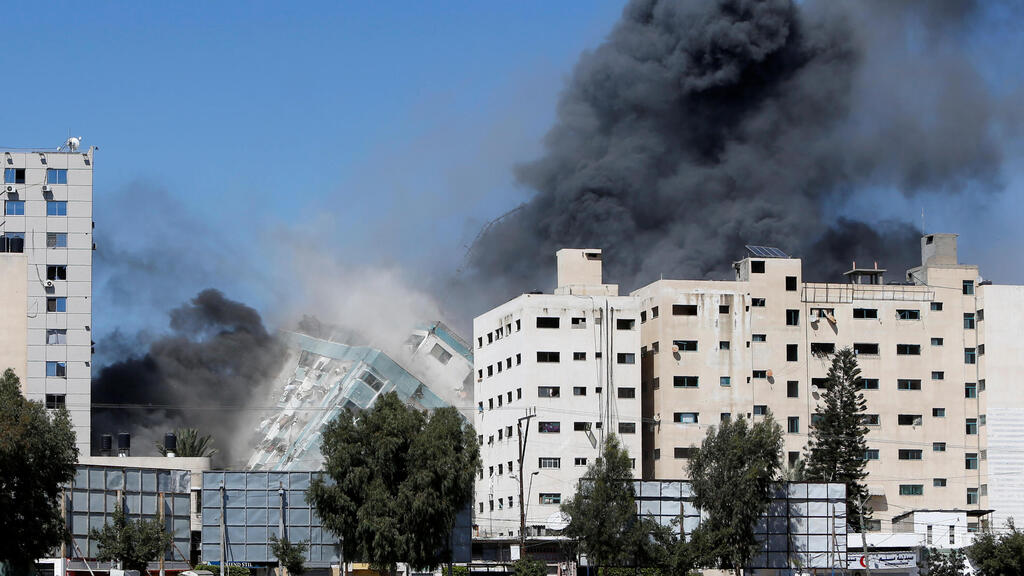

The IDF brings down a high-rise building in Gaza that it said was a Hamas intelligence site as well as offices for foreign media
(Photo: Reuters)
"I would like to see how people would react if just one rocket hit Washington D.C.," he said.
"We try to avoid civilian casualties and often issue warnings for civilians to get out of buildings before we strike but sometimes, we must launch surprise attacks in order to hit our targets," he said.
The Associated Press reported Sunday that the road to Shifa Hospital in Gaza City had been bombed, blocking access to the medical center.
Palestinian health officials said at least seven people were killed in Israel's overnight strikes on Gaza and at least 40 others were injured. Emergency workers were still trying to rescue people trapped in the ruins caused by the Israeli attacks and that five people so far had been found.
In a statement on Saturday evening, Prime Minister Benjamin Netanyahu said Hamas leaders had no where to hide from the wrath of the Israeli military might.
"No one is immune," Netanyahu said.
First published: 08:28, 05.16.21


